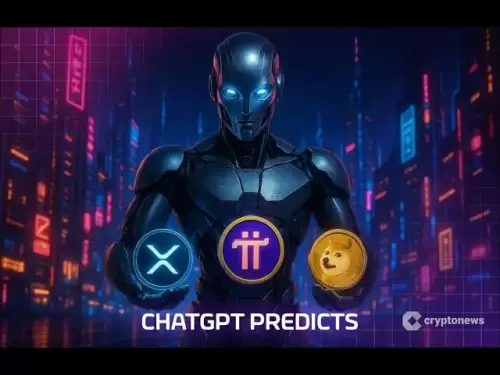-
 Bitcoin
Bitcoin $117,002.5142
-3.17% -
 Ethereum
Ethereum $3,032.2959
0.03% -
 XRP
XRP $2.8840
-3.23% -
 Tether USDt
Tether USDt $1.0000
0.01% -
 BNB
BNB $681.9534
-2.18% -
 Solana
Solana $160.1985
-3.59% -
 USDC
USDC $1.0000
0.00% -
 Dogecoin
Dogecoin $0.1925
-4.69% -
 TRON
TRON $0.2962
-1.31% -
 Cardano
Cardano $0.7242
-2.55% -
 Hyperliquid
Hyperliquid $47.6147
-1.78% -
 Stellar
Stellar $0.4459
-4.65% -
 Sui
Sui $3.9748
2.74% -
 Chainlink
Chainlink $15.4733
-3.92% -
 Hedera
Hedera $0.2312
-3.66% -
 Bitcoin Cash
Bitcoin Cash $486.9832
-3.97% -
 Avalanche
Avalanche $20.9479
-3.19% -
 UNUS SED LEO
UNUS SED LEO $9.0044
-0.02% -
 Shiba Inu
Shiba Inu $0.0...01309
-2.92% -
 Toncoin
Toncoin $2.9996
-0.23% -
 Litecoin
Litecoin $92.6460
-3.62% -
 Polkadot
Polkadot $3.9076
-2.94% -
 Monero
Monero $333.1865
-3.92% -
 Uniswap
Uniswap $9.1236
-2.50% -
 Dai
Dai $0.9999
0.02% -
 Ethena USDe
Ethena USDe $1.0004
-0.02% -
 Bitget Token
Bitget Token $4.4858
0.92% -
 Pepe
Pepe $0.0...01222
-0.74% -
 Aave
Aave $318.6905
-0.67% -
 Bittensor
Bittensor $429.3998
4.15%
How to find the genesis block of a new mineable coin?
The genesis block is the first block in a blockchain, hardcoded into the coin's source code and containing key details like timestamp and initial mining rewards.
Jul 15, 2025 at 09:15 am
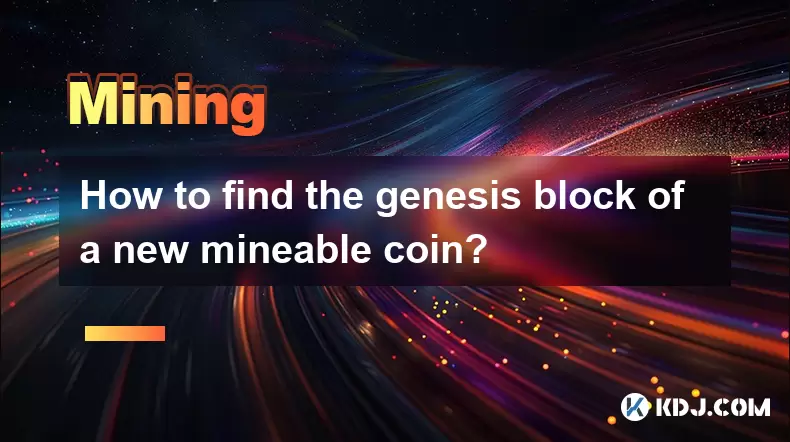
Understanding the Genesis Block Concept
The genesis block is the first block ever mined in a blockchain. It serves as the foundation for the entire network and contains specific data that sets up the initial conditions of the cryptocurrency. For new mineable coins, this block typically includes the timestamp, the creator's message or signature, and sometimes a reference to an external event like a news headline.
In most cases, the genesis block is hardcoded into the coin’s source code during its creation. This means that when you're trying to find the genesis block of a new mineable coin, you’re essentially looking for the very first entry in the blockchain that starts with a predefined set of parameters.
Important: The genesis block does not reference any previous blocks because it is the starting point.
Checking the Source Code Repository
Most new mineable cryptocurrencies are open-source projects hosted on platforms like GitHub or GitLab. These repositories often contain the complete blockchain configuration files, including the genesis block definition.
To locate the genesis block within the source code:
- Search for files named blockchainparams.cpp, chainparams.cpp, or similar variations depending on the project structure.
- Look for functions such as GenesisBlock() or variables like genesis.
- Review the content inside these functions to identify details like the hash, timestamp, and initial mining reward.
If the repository has multiple branches, ensure you're examining the correct one—usually the main or master branch.
Exploring Blockchain Explorers for New Coins
Once a new mineable coin has launched and started producing blocks, you can use a blockchain explorer to navigate through its chain. Many newer coins deploy their own explorers or use third-party services like Blockchair, Blockchair.com, or custom-built tools.
To find the genesis block via a blockchain explorer:
- Visit the official website of the coin and look for a link labeled Blockchain Explorer or Explorer.
- Type "1" in the search bar (since the genesis block is usually block number 0 or 1).
- Alternatively, check the earliest timestamp listed in the explorer’s homepage or statistics panel.
Some explorers also provide a direct link to the genesis block, especially if the developers have included it in the documentation or welcome message.
Analyzing the Coin’s Whitepaper and Documentation
Before launching a new mineable coin, developers often publish a whitepaper or technical documentation outlining the blockchain’s architecture, consensus mechanism, and key milestones. These documents frequently include details about the genesis block.
To extract genesis block information from documentation:
- Download the whitepaper and perform a keyword search for terms like genesis block, initial block, or block 0.
- Check the technical appendix or implementation section for hashes, timestamps, or mining configurations.
- Review release notes or developer logs if available, as they might detail the launch process and genesis event.
Sometimes, the genesis block hash is published alongside the announcement of the coin’s launch on forums like Bitcointalk or social media channels.
Using Command-Line Tools and Node Data
For advanced users who run a full node of the new coin, retrieving the genesis block directly from the node’s database is possible. Most cryptocurrencies store blockchain data locally after syncing.
To access the genesis block using command-line tools:
- Start by running the daemon of the coin, e.g., ./coind -daemon.
- Use the command getblockhash 0 to fetch the hash of the genesis block.
- Then execute getblock [hash] where [hash] is the value obtained from the previous step.
- Review the output for fields like version, merkleroot, and nonce which describe the block’s structure.
Ensure your node is fully synced before attempting these commands. If the node hasn’t completed syncing, the results may be incomplete or inaccurate.
Frequently Asked Questions
Q: Can the genesis block be modified after the coin launches?
A: No, the genesis block is immutable once the blockchain is created. Any changes would require a hard fork and re-launching the entire network.
Q: Is the genesis block always mined by the creator?
A: Yes, since it’s the first block and no miners existed prior to its creation, the genesis block is typically generated by the developer or team behind the coin.
Q: Do all cryptocurrencies have a genesis block?
A: Yes, every blockchain-based cryptocurrency starts with a genesis block regardless of whether it’s mineable, pre-mined, or minted.
Q: Why isn't my blockchain explorer showing the genesis block even though the coin exists?
A: Some explorers index blocks starting from block number 1, skipping the genesis block. Try searching manually using the hash or checking the coin’s documentation for the correct block identifier.
Disclaimer:info@kdj.com
The information provided is not trading advice. kdj.com does not assume any responsibility for any investments made based on the information provided in this article. Cryptocurrencies are highly volatile and it is highly recommended that you invest with caution after thorough research!
If you believe that the content used on this website infringes your copyright, please contact us immediately (info@kdj.com) and we will delete it promptly.
- Solana, Memecoin, Holders: Little Pepe's Big Splash and the Evolving Landscape
- 2025-07-15 22:30:13
- Pump.fun, Token Launch, and Whale Control: A Wild Ride in Crypto
- 2025-07-15 20:50:12
- Bitcoin Mining Reimagined: Mobile Mining and the Energy Efficiency Revolution with Bitcoin Solaris
- 2025-07-15 21:50:12
- Dogecoin, Solana, and Remittix: A New Wave in Crypto?
- 2025-07-15 21:10:12
- Grok's Crypto Crystal Ball: XRP, Dogecoin, and the Unilabs Uprising
- 2025-07-15 21:30:12
- Cardano (ADA): Crypto Expert's Sell Warning or Golden Opportunity?
- 2025-07-15 21:10:12
Related knowledge
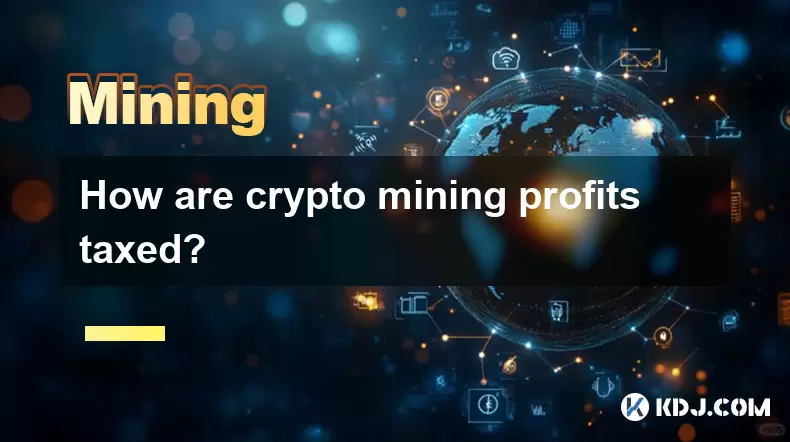
How are crypto mining profits taxed?
Jul 14,2025 at 12:28am
Understanding Cryptocurrency Mining and TaxationCryptocurrency mining involves validating transactions on a blockchain network and earning rewards in ...
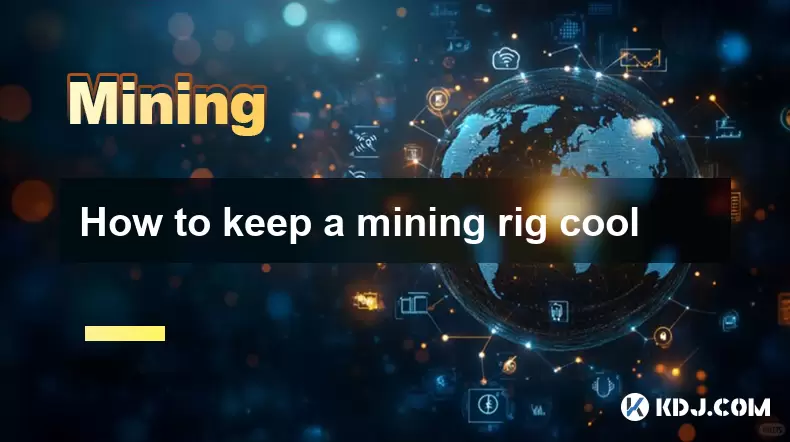
How to keep a mining rig cool
Jul 12,2025 at 01:42pm
Understanding the Importance of Cooling in Mining RigsCryptocurrency mining is an intensive process that places heavy demand on hardware components, p...
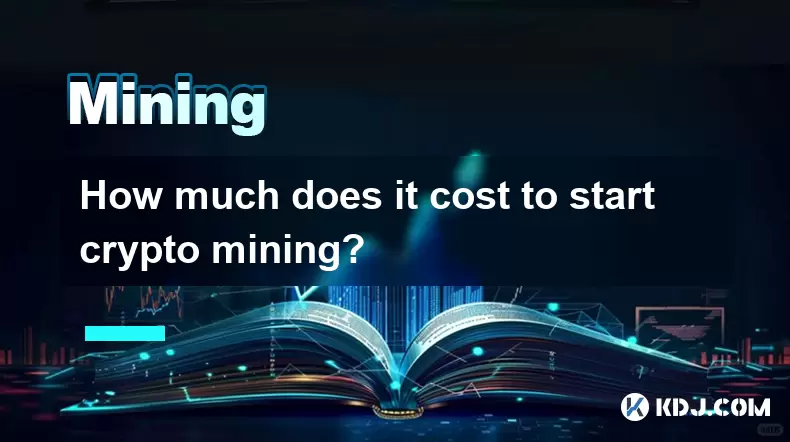
How much does it cost to start crypto mining?
Jul 13,2025 at 12:22am
Understanding the Basic Costs of Crypto MiningStarting crypto mining involves several upfront and ongoing expenses. The primary costs include hardware...
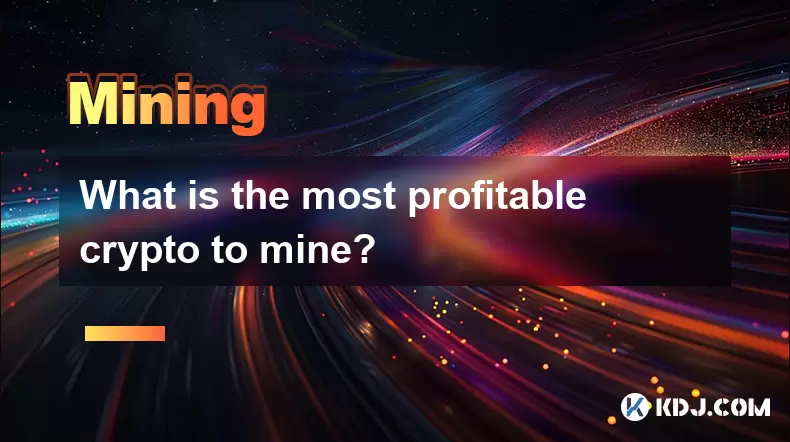
What is the most profitable crypto to mine?
Jul 13,2025 at 07:00am
Understanding Mining Profitability in CryptocurrencyWhen evaluating the most profitable crypto to mine, it's essential to consider several factors tha...
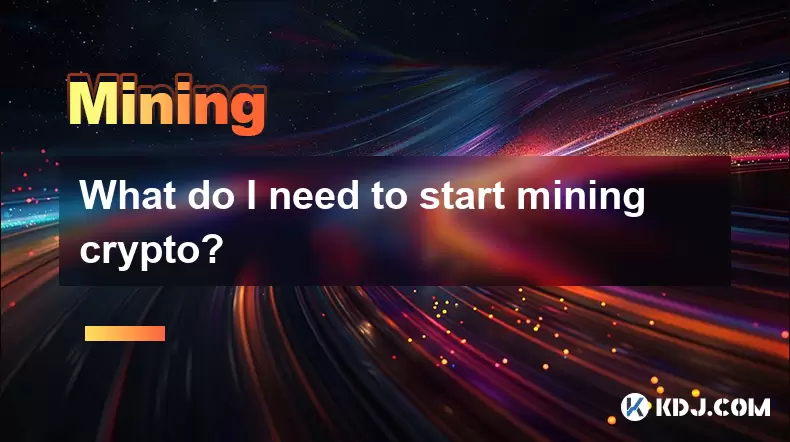
What do I need to start mining crypto?
Jul 13,2025 at 12:28am
Understanding the Basics of Crypto MiningCrypto mining is the process by which transactions are verified and added to a blockchain, and new coins are ...
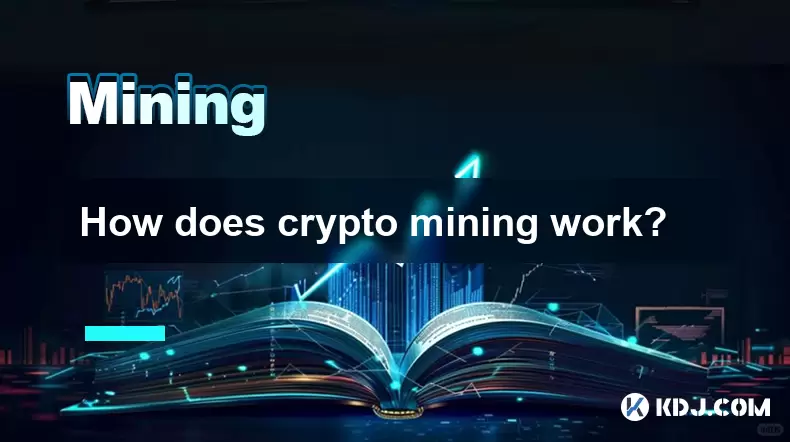
How does crypto mining work?
Jul 13,2025 at 11:01am
Understanding the Basics of Crypto MiningCrypto mining is the process through which new cryptocurrency coins are introduced into circulation and trans...

How are crypto mining profits taxed?
Jul 14,2025 at 12:28am
Understanding Cryptocurrency Mining and TaxationCryptocurrency mining involves validating transactions on a blockchain network and earning rewards in ...

How to keep a mining rig cool
Jul 12,2025 at 01:42pm
Understanding the Importance of Cooling in Mining RigsCryptocurrency mining is an intensive process that places heavy demand on hardware components, p...

How much does it cost to start crypto mining?
Jul 13,2025 at 12:22am
Understanding the Basic Costs of Crypto MiningStarting crypto mining involves several upfront and ongoing expenses. The primary costs include hardware...

What is the most profitable crypto to mine?
Jul 13,2025 at 07:00am
Understanding Mining Profitability in CryptocurrencyWhen evaluating the most profitable crypto to mine, it's essential to consider several factors tha...

What do I need to start mining crypto?
Jul 13,2025 at 12:28am
Understanding the Basics of Crypto MiningCrypto mining is the process by which transactions are verified and added to a blockchain, and new coins are ...

How does crypto mining work?
Jul 13,2025 at 11:01am
Understanding the Basics of Crypto MiningCrypto mining is the process through which new cryptocurrency coins are introduced into circulation and trans...
See all articles


























